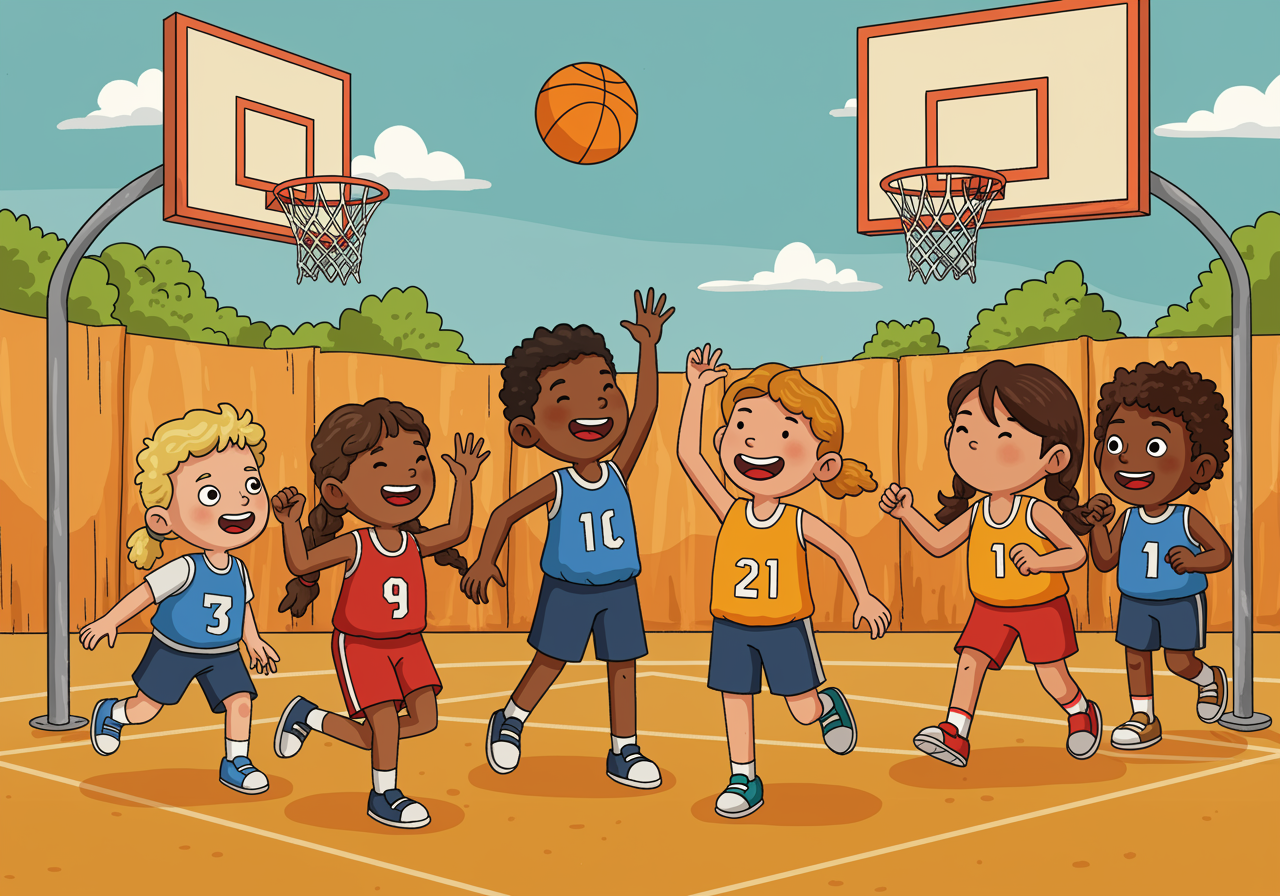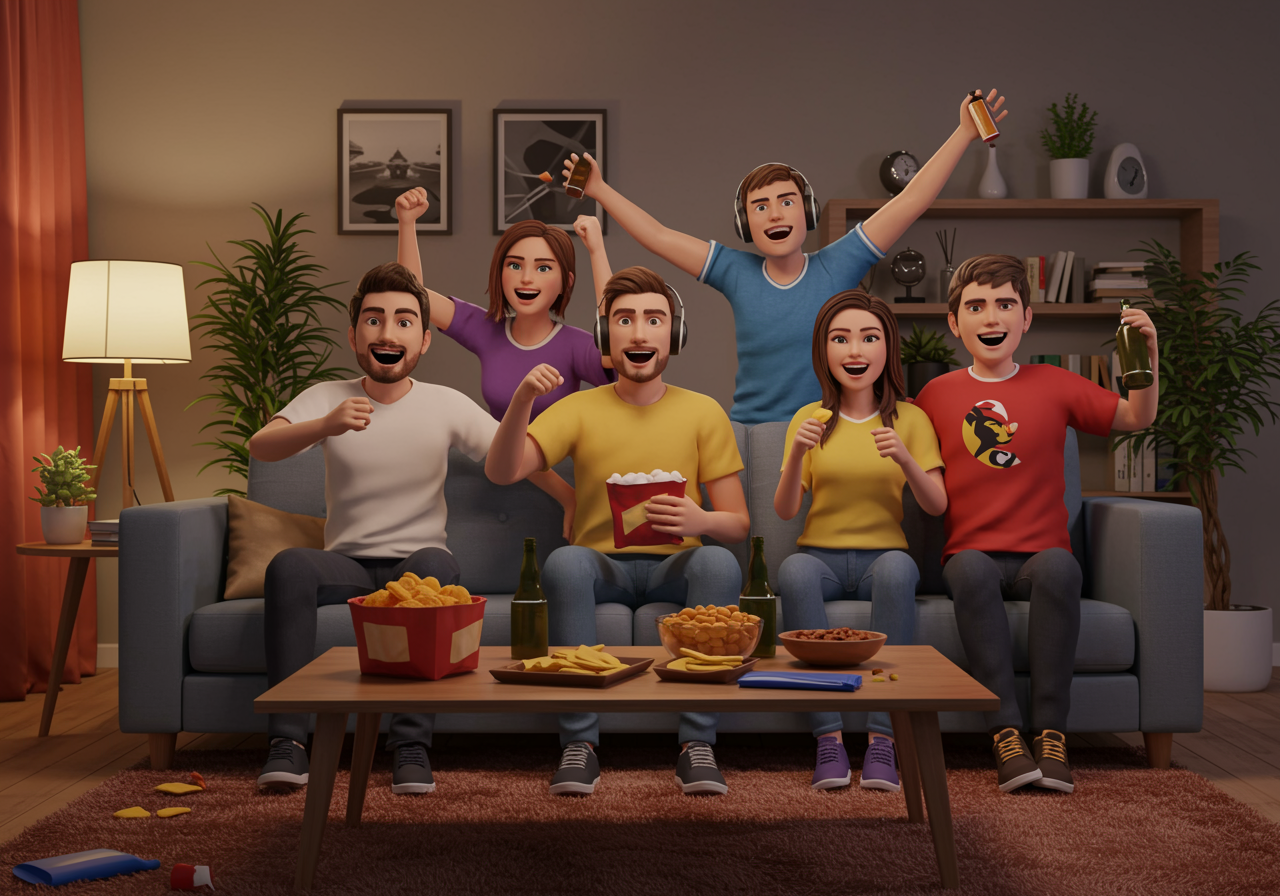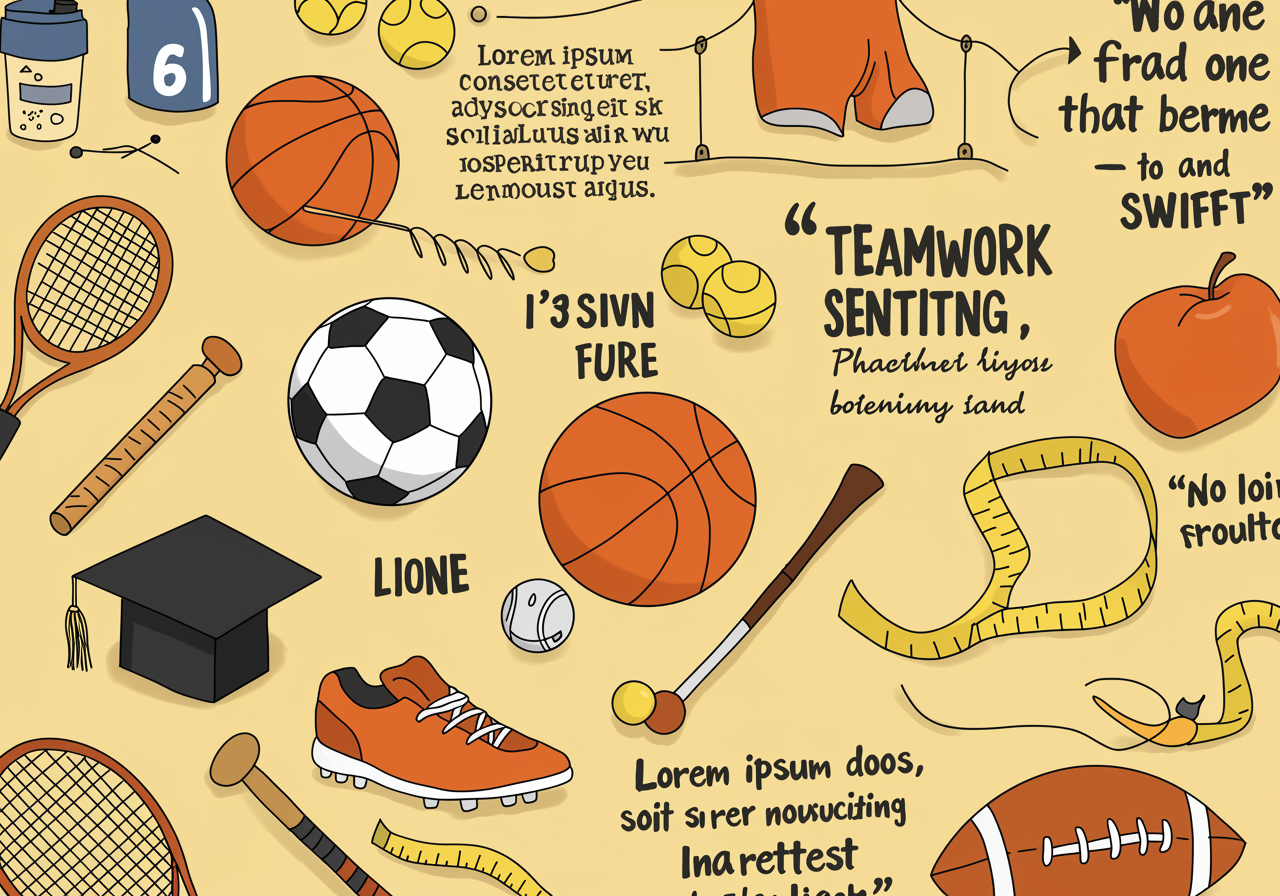Game On! How Sports Entertainment Builds Super Teams and Healthy Habits
Discover why your favorite sports shows and games are secret teachers of teamwork and wellness
Ever wonder why watching sports feels so exciting and makes you want to move? Let’s explore how sports entertainment becomes a fun classroom for life skills!
Overview
Think about the last time you watched a basketball game, cheered for your favorite esports team, or binged a sports movie. Did you notice how pumped up you felt? Sports entertainment isn't just fun to watch – it's like a secret training ground for some of life's most important skills. When we see athletes working together, pushing through challenges, and celebrating victories, we're actually learning lessons about teamwork, perseverance, and taking care of our bodies and minds. The cool part? These lessons stick with us long after the game ends!

Understand in 30 Seconds
Get up to speed quickly
- Teamwork in Action: Sports entertainment shows us real teamwork – players supporting each other, communicating under pressure, and working toward shared goals.
- Movement Motivation: Watching exciting sports makes us want to get active ourselves, turning entertainment time into inspiration for physical activity.
- Mental Toughness Training: Athletes demonstrate how to handle wins, losses, and pressure, teaching us emotional skills we use in school and friendships.
- Goal-Setting Examples: Sports stories show us how setting goals, practicing regularly, and staying committed leads to success in any area of life.
Real Life Scenario
Situations you can relate to
Imagine you're watching your favorite esports tournament with friends. The team that's winning isn't just the most skilled – they're the ones talking to each other, covering for teammates' mistakes, and celebrating each other's successes. When one player makes a great move, the whole team benefits. Now think about your group project at school. What if you approached it like that winning esports team? What would change if everyone had a specific role, communicated clearly, and supported each other instead of just trying to be the star? That's the magic of sports entertainment – it shows us teamwork in action, making those abstract ideas suddenly make perfect sense.

Role Play
Spark a conversation with “what if” scenarios
What if you were the coach of a team where everyone wanted to be the superstar?
- Role play: Take turns being the coach and players. Practice how to give everyone important roles while working toward the same goal.
What if you had to explain a complex play to a teammate who speaks a different language?
- Role play: Use only gestures, drawings, or simple words to communicate a strategy. Discover how clear communication helps teams succeed.
What if your team was losing with 5 minutes left in the game?
- Role play: Role-play how to stay positive, encourage teammates, and problem-solve under pressure without giving up.
FAQs
Frequently asked questions people want to know
How does watching sports actually teach teamwork?
When we watch teams succeed, our brains learn those patterns. We see how communication, supporting others, and working together creates better results than going solo.
Can esports really promote healthy living?
Absolutely! Esports athletes need mental fitness, stress management, and often cross-train with physical exercise. Plus, many games encourage movement and active thinking.
What if my child prefers individual sports or activities?
Individual sports still teach teamwork with coaches, training partners, and support teams. They also build self-discipline and personal goal-setting skills.
Examples in the Wild
See how this works day to day
- The NBA's 'NBA Cares' program teaches kids teamwork through basketball while promoting education and community service (NBA.com Community Programs)
- Professional esports teams like Team Liquid require players to maintain physical fitness and mental health routines alongside gaming practice (Team Liquid Training Programs)
- The 'Play 60' campaign by NFL encourages kids to be active for 60 minutes daily, using football entertainment to promote healthy habits (NFL Play 60 Initiative)
- Olympic athletes often credit team support (coaches, trainers, family) for individual achievements, showing how teamwork enables personal success (Olympic Games Tokyo 2020 Athlete Stories)
In Summary
What you should know before you start
- Sports entertainment naturally teaches teamwork by showing real examples of communication, support, and shared goals in action
- Watching exciting sports motivates kids to be more active and try new physical activities themselves
- Athletes demonstrate important life skills like handling pressure, bouncing back from setbacks, and maintaining mental health
- Sports stories make abstract concepts like goal-setting, perseverance, and healthy competition easy to understand and apply
Pro-tip for Parents
You got this!
If your child seems more interested in the entertainment than the lessons, that's perfect! Start by asking what they found most exciting about what they watched. Often, kids naturally pick up on teamwork moments ('Did you see how they all celebrated together?') or healthy habits ('Wow, they train so hard!'). Let their observations lead the conversation rather than forcing the educational angle. The lessons will emerge naturally when kids feel heard and engaged.

Keep an Eye Out For
Find these examples in everyday life
- Behind-the-scenes sports documentaries that show athlete preparation, teamwork, and healthy living routines
- Local sports events where you can observe team dynamics and fan community spirit firsthand
- Video games that require team coordination or promote physical activity like Just Dance or Ring Fit Adventure
Explore Beyond
Look up these related research topics
- How does music and entertainment influence our emotions and behavior?
- What can we learn about leadership from watching different team captains and coaches?
- How do different cultures around the world use sports and games to teach life lessons?